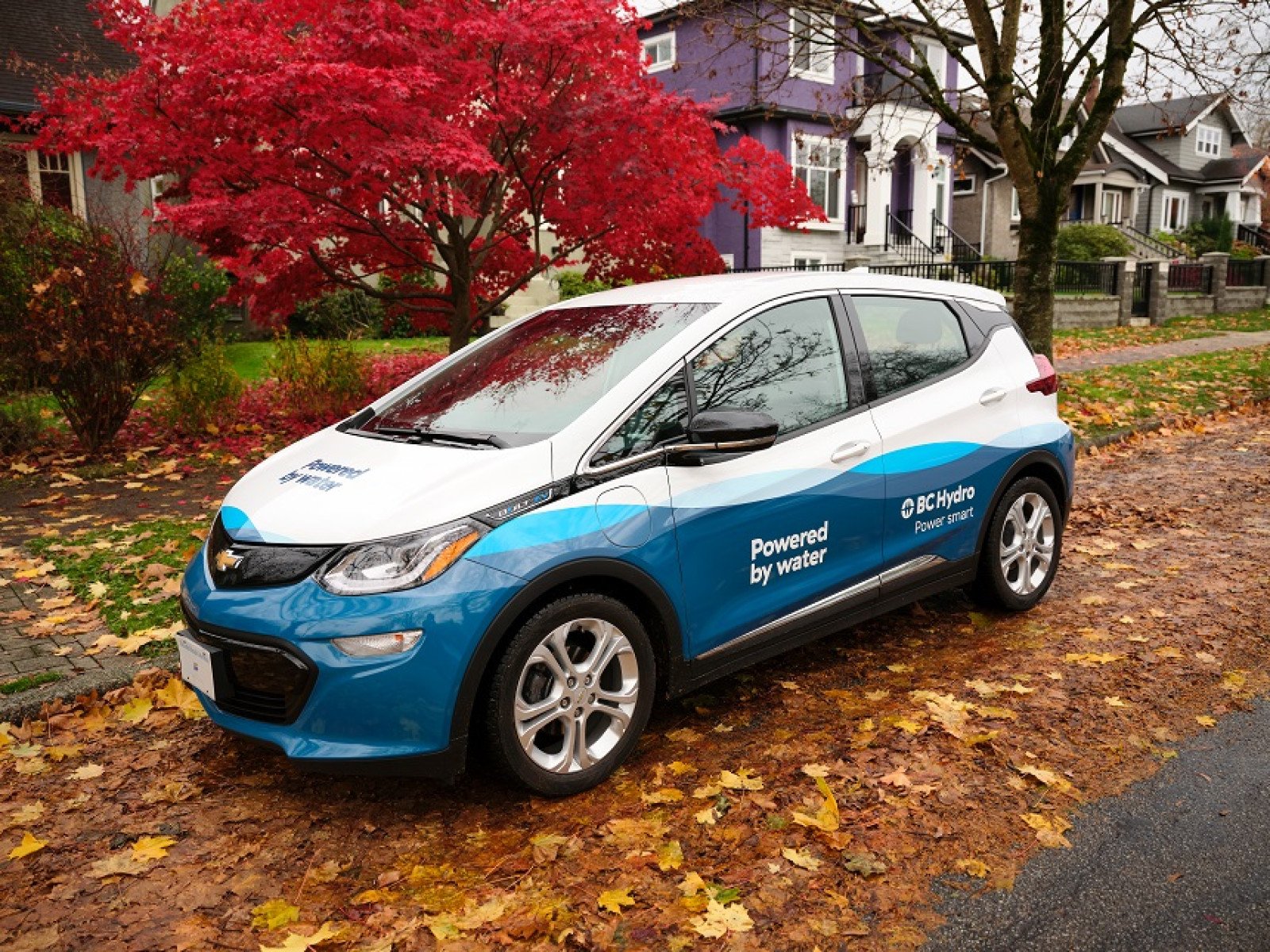Curious about electric vehicles
What do you want to know about electric vehicles (EVs)? Join the conversation about the future of transportation.

Overview
Are you curious about the types of EVs, cost, how the batteries work or their environmental impact? Students watch a slideshow about EVs and develop a question to investigate, analyze and apply what they learn.
Instructions
What you'll need
- “Curious about EVs” slideshow
- "Curious about EVs" worksheet
- "ABCs of website evaluation" guide
- Digital projector and screen
Introducing electric vehicles
- EVs are part of our transportation future. The Canadian and B.C. governments have set a target that all new car sales must be zero-emission vehicles, including electric, by 2040 to help meet climate goals.
- Show students the “Curious about EVs” slideshow to help them identify what they may want to learn about electric vehicles.
- Give each student a copy of the “Curious about EVs” worksheet so they can record topics of interest during the slideshow and partner work.
Curious about electric vehicles?
- Give students time to record any final topics of interest on the worksheet.
- Review the rest of the “Curious about EVs” worksheet.
- Allow time for students to create a question related to EVs.
- Have students plan their research or experiment and then conduct it.
- Have them record notes and sources in a way they’re used to for your class. This is used as evidence of learning.
- The “ABCs of website evaluation” guides students as they review the reliability and credibility of websites. If students aren’t familiar with evaluating websites, review the handout.
- Students reflect on what they learned and consider how it connects to themselves and the “real world”.
- Allow time for paired or small group discussion to share what they learned. Debrief and discuss student presentations.
Modify or extend this activity
- Learn about electrification of other modes of transportation, such as bicycles, ferries, trucks and airplanes.
- Have students create a representation of learning about electric vehicles (model, poster, slideshow, etc.) and host an electric vehicle symposium.
Curriculum Fit
Core competencies
Communication
- Communicating
Thinking
- Critical and reflecting thinking
Personal and social
- Social awareness and responsibility
Science 10, 11, 12
Big ideas
- Energy is conserved and its transformation can affect living things and the environment (Science 10)
- Scientific understanding enables humans to respond and adapt to changes locally and globally (Science for Citizens 11)
- Living sustainably supports the well-being of self, community and Earth (Environmental Science 12)
- Human activities cause changes in the global climate system (Environmental Science 12)
Content
- Impacts of energy transformations from technologies (Science 10)
- Actions and decisions affecting the environment (Science for Citizens 11)
- Beneficial scientific innovations (Science for Citizens 11)
- Personal choices and sustainable living (Environmental Science 12)
Curricular competencies
Questioning and predicting
- Demonstrate a sustained intellectual curiosity about a scientific topic or problem of personal, local or global interest
Planning and conducting
- Collaboratively and individually plan, select and use appropriate investigation methods to collect reliable data
Evaluating
- Demonstrate an awareness of assumptions, question information given and identify bias in their own work and in primary and secondary sources
- Consider social, ethical and environmental implications of findings
Applying and innovating
- Contribute to finding solutions to problems at a local and/or global level through inquiry
Communicating
- Communicate scientific ideas, information and suggested course of action for a specific purpose and audience
Assessments
- Assess students’ ability to listen, share ideas and stay on topic in paired or class discussion.
- Assess students’ ability to generate questions, plan how to collect information, analyze, apply and share what they learned about EV's.
Teaching Notes
Electrification
Electrification refers to switching from fossil fuels like gasoline, diesel and natural gas to clean electricity. Teach your students about electrification and making the switch to clean energy with this video.
Electric vehicles
Transportation, through the burning of fossil fuels, is the second largest source of greenhouse gas emissions in Canada. In order to reduce greenhouse gas emissions and fight climate change, governments are moving towards clean renewable energy sources for transportation. By 2040, Canada and B.C. are aiming that all new light trucks and car sales will be zero-emission vehicles. Electric vehicles reduce carbon emissions and need less maintenance due to fewer moving parts and fuel costs. In B.C., 97% of our electricity is generated from a clean and renewable energy source. Barriers to buying an electric vehicle include the initial cost and range, or distance you can travel, on a charge. Innovation and new technologies are continually improving battery storage and EVs are able to travel greater and greater distances. See BC Hydro and PlugInBC for more information.
Clean renewable energy sources
Choosing renewable energy sources helps reduce the impact of our energy use on the environment. In B.C., 97% of electricity is generated from water, a clean and renewable source. Burning fossil fuels for transportation releases greenhouse gases and carbon dioxide into the environment that had previously been trapped underground.
Asking questions
You may choose to have students focus their questions on the big ideas and content from your subject and grade curriculum.
Students may benefit from working in pairs or small groups as they develop their questions. Have students come up with questions for each of these simple question starters to generate ideas:
- Which…?
- How…?
- What if…?
- Should…?
- Why…?
Once you know the topics your students are interested in, you can work with the librarian to gather useful resources for the initial and more in-depth research.






